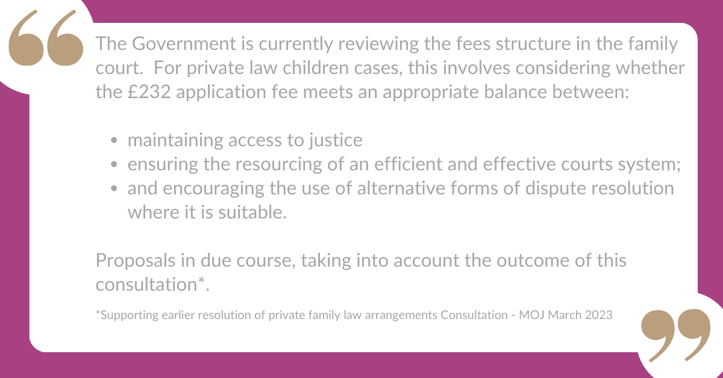CANSFORD LABS
Exclusive for UK Family Law: Two-tier Law: Money Buys Me Justice
on Jul 3, 2023
In his latest article, blogger John Bolch in his experience as a family law lawyer of many years, examines mediation and the financial costs behind the new push for open justice, reducing court time and affordability for potential clients (or not).

There are obviously many things in life that only money can buy (although whether it can’t buy you love, as The Beatles maintained, I will leave the reader to decide).
But there are certain basic rights that surely any fair society should offer equally to all of its members irrespective of wealth: proper healthcare and a decent education are two obvious examples.
A third example is equal access to justice. It is axiomatic that a citizen does not have rights if he or she cannot enforce them. And that requires access to justice.
But as any family lawyer will attest, access to justice in England and Wales is far from equal. In fact, for some it is pretty well non-existent.

These sadly unoriginal thoughts came back to mind the other day when the Ministry of Justice published its latest quarterly Family Court statistics, for January to March 2023.
The statistics showed that in that quarter in 40 per cent of private law cases neither party had legal representation, and in only 18 per cent both parties were represented.
Prior to the abolition of legal aid for most private law family matters in 2013 the figures were very different: in the first quarter of 2012 neither party was represented in only about 12 per cent of cases, and in about 46 per cent of cases both parties were represented.

Now, I accept that lack of representation does not mean that those people do not have access to justice. It does, however, mean that their cases will likely be less well presented, which could mean that they are having justice denied. And in some cases it may well be the case that the prospect of having to represent themselves is putting people off from seeking justice at all.
As someone who practised at a time when legal aid ensured that everyone had access to the law (and, to my cost, spent the majority of my time doing legal aid work), the idea of this two-tier justice system, with one lane for the rich and another for the rest, is utterly depressing.

Of course, the government’s big idea to provide ‘justice’ for those denied legal aid was mediation. After all, if the plebs can’t afford lawyers, let them mediate. Or something.
But the big idea has not gone well. In fact, it has been something of a disaster, with mediation starts currently standing at about half of the level that they were at before legal aid was abolished.
Undeterred, the government has a plan to deal with that: make mediation compulsory!
Mediation is of course viewed by many as the answer to the problem of access to justice, removing entirely the need for contested court proceedings.
But mediation is not the panacea that many of its enthusiastic proponents claim it to be.

In their responses to the government’s consultation upon its compulsory mediation proposals both the Law Society and Resolution have warned that mediation is not suitable for all cases.
And I recall back in the day when I was practising I would recommend mediation to all of my clients, but few of them wanted to try it, and of those who did most had less than satisfactory experiences. And I have seen similar stories today.

Moving from the anecdotal to the statistical, the latest figures for mediation, also just published by the Ministry of Justice, show that of those few cases that went to mediation, only 56 per cent ended with a successful agreement.
And compulsory mediation would not level the justice playing field, as some may think. Those with money could still evade compulsory mediation, for example by ‘going private’ via arbitration and private FDRs, leaving those who cannot afford such things to go through what will often be a charade, merely delaying the evil moment when court is the only way that a dispute can be resolved.
One way or the other, two-tier justice is here to stay.
Video credit: Cottonbro studio: https://www.pexels.com/video/hand-rich-money-gold-3943971/

John Bolch
John Bolch is well-known as one of the UK’s leading family law bloggers. He gave up practising in 2009 and now works freelance as a writer on family law matters.
